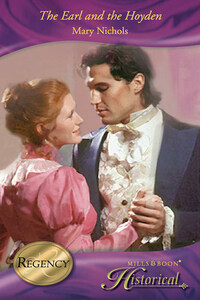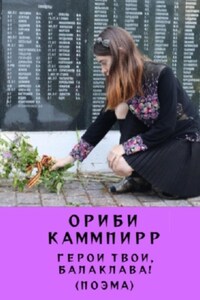‘Goodnight, Miss Cartwright. Andthank you for an evening far moreenjoyable than I ever expected itto be.’
He took her hand and lifted it to his lips, lingering a little over the kiss, wishing he dared kiss her properly but knowing he would be forever damned if he did.
It was several seconds before she could repossess herself of her hand, and by that time she was tingling with a sensation she could not describe. It was a feeling of being on the verge of something so exciting she was shivering. Her stomach was churning, her heart beating so fast she could hardly breathe, and her toes and fingers curled involuntarily. She climbed into the curricle without ever knowing how she got there. This man was dangerous! He threatened everything she stood for. She must be on her guard, always on her guard, lest he undermine her confidence and the tenets by which she lived crumbled to nothing.
She flicked the reins and, as the pony started forward, trotted round the circle before the door and out of the gate she found herself murmuring, ‘Remember whose daughter you are, Charlie Cartwright. And remember whose son he is.’
Born in Singapore, Mary Nichols came to England when she was three, and has spent most of her life in different parts of East Anglia. She has been a radiographer, school secretary, information officer and industrial editor, as well as a writer. She has three grown-up children, and four grandchildren.
Recent novels by the same author:
TALK OF THE TON
WORKING MAN, SOCIETY BRIDE A DESIRABLE HUSBAND RUNAWAY MISS RAGS-TO-RICHES BRIDE
Chapter One
1814
Seven o’clock on a fine spring morning was the best time in all the world to be out riding, Charlotte decided, as Bonny Boy took her over the park surrounding Mandeville and into the woods above it, where the soft ground deadened the sound of his galloping hooves. It was good to be home again after the uncomfortable heat of Jamaica and the unpleasantly rough voyage, though, thank goodness, she had not succumbed to seasickness. She had missed the worst of the long hard winter, although the Atlantic had given her a taste of it as they buffeted their way homewards in the Fair Charlie.
On one side of her, the wooded slopes, a mixture of dark green conifers and deciduous trees just beginning to show their pale green hid Mandeville from view. On the other, the heather-covered hills separated Mandeville from Amerleigh. The heather was not yet in bloom, but the gorse brightened the terrain with its butter-coloured blooms. Mandeville was hers, and had been ever since her father’s death two years before, along with the cotton mill at Scofield, five miles distant; the Jamaican plantation; the Fair Charlie—a slaver that, since the abolition of the abominable trade, had become an ordinary trading schooner—together with the lead mine under the ground over which she was riding, though that had become so deep and so frequently flooded it was hardly profitable. Did having all that make the sacrifices worthwhile?
What had she sacrificed? Her girlhood, perhaps. Her chance of marriage and children because she was well aware that her mode of living would put all but the most desperate and greedy off courting her. And the desperate and greedy she was easily able to rebuff. She did not want to marry; marriage meant handing everything she owned over to her husband and becoming his property, just as the plantation slaves had been her property, to do with as she pleased. She had been aware of the injustice of that long before her father died, but he always said he could not afford to give them their freedom; he needed their labour to produce the sugar on which a large proportion of his wealth was founded. ‘Besides,’ he had said, ‘free men can be dismissed if they do not work hard enough and that means they also lose their homes. They know they are better off as they are.’ Being a child at the time, a child brought up to believe her papa was never wrong, she had accepted his argument. A year after his funeral she had taken the long voyage to the West Indies to see things for herself.
The conditions in which the slaves lived and their treatment by the overseers had appalled her. She had offered them freedom, but as they had nowhere else to go, she had given them a weekly wage to remain in her employ. Daniel Mortlock, her plantation manager, had told her that acting arbitrarily would make the slaves on neighbouring plantations discontented and ready to cause trouble, but she had simply said what her neighbours did was no concern of hers, but if they had an ounce of humanity they would follow her example. She was adamant no human being ought to own another and he had been obliged to back down.
If she had a husband, everything would be in his hands and she was not prepared to forgo her independence. Not for anyone. Her biggest regret was that she would have no children. She told herself she would have to make do with other people’s children and that included the villagers and those who worked in her mill, but it could never be the same as having a child of her own, someone she could love, as only a mother can love a child.














